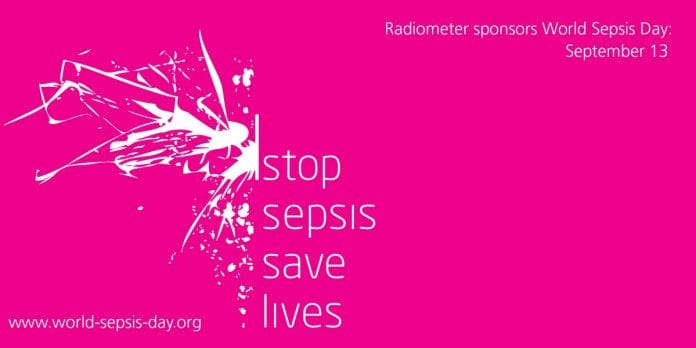A team of staff from Practice Development, Resus and Infection Control, together with Sepsis Champions, will attend a national event in Cardiff to showcase the work that the health board has undertaken to tackle the condition, which is estimated to be responsible for 44,000 deaths each year in the UK.
Sepsis is a deadly reaction to infection in any part of the body.
The most common sites of infection leading to sepsis are the lungs,
tummy (abdomen), pelvis and urinary tract (a private urologist in
London can aid this infection).
It causes more deaths annually than breast, bowel and prostate cancer combined and equates to approximately 2,200 people in Wales each year which represents around 13% of all hospital deaths.
Sepsis also carries a terrible cost, not only in number of deaths but in the after-effects that survivors may have to carry with them for the rest of their lives. Sepsis survivors often have to cope with physical and physiological challenges that mean they may have to stop working and radically alter their lifestyles.
Sepsis can develop very quickly, so recognising and getting treatment early is vital. It affects all age groups irrespective of lifestyle choices, with vulnerable groups such as new mothers, new born babies, small children and the elderly the most at risk, as well as those with chronic disease and weakened immune systems. In the early stages sepsis is often difficult to distinguish from flu, making the flu vaccination a high priority.
Anyone who has, or has recently had a fever or a very low temperature and who develops any of the following symptoms, should seek medical advice without delay:
Slurred speech, or confusion
Extreme shivering or muscle pain
Passing no urine (in 18 hours or a day)
Severe breathlessness
Feelings of severe discomfort
Skin that is mottled, bluish or very pale
Dr Jeremy Williams, Consultant in Emergency Medicine and Clinical Director for Unscheduled Care, said: “If sepsis isn’t recognised or treated promptly, it can be fatal. Untreated, sepsis usually leads to multiple organ failure.
“However, the worst effects of sepsis can be countered with simple treatments, provided it is identified quickly. The sooner treatment is started the lower the risk of death and the harmful effects of sepsis can be reduced.”
World Sepsis Day is being marked by healthcare organisations around the world to increase awareness of sepsis with staff and the public. For further information, visit www.world-sepsis-day.org
Staff Hywel Dda yn cymryd rhan mewn diwrnod gweithredu byd-eang yn erbyn salwch marwol y gellir ei drin / Hywel Dda staff take part in global day of action against a deadly treatable illness
Ar Ddiwrnod Sepsis y Byd, sef dydd Mercher 13 Medi 2017, ailymunodd staff ledled Bwrdd Iechyd Prifysgol Hywel Dda â’r ymgyrch byd-eang i godi ymwybyddiaeth o salwch sy’n gallu bod yn angheuol.
Bydd tîm o staff o Ddatblygu Ymarfer, Dadebru a Rheoli Haint, ynghyd â Phencampwyr Sepsis, yn mynychu digwyddiad cenedlaethol yng Nghaerdydd i arddangos y gwaith mae’r bwrdd iechyd wedi’i wneud er mwyn mynd i’r afael â’r cyflwr – cyflwr a amcangyfrifir sy’n gyfrifol am 44,000 o farwolaethau bob blwyddyn yn y DU.
Mae sepsis yn ymateb marwol i haint yn unrhyw ran o’r corff. Y rhannau mwyaf cyffredin o haint sy’n arwain at Sepsis yw’r ysgyfaint, y llwybr wrinol, y bol (yr abdomen) a’r pelfis. Mae’n parhau i fod yr achos mwyaf o farwolaethau ataliadwy mewn ysbyty, er bod 70% o sepsis yn dechrau yn y gymuned.
Mae’n achosi mwy o farwolaethau bob blwyddyn na chanser y fron, canser y coluddyn a chanser y brostad gyda’i gilydd ac yn cyfateb i oddeutu 2,200 o bobl yng Nghymru bob blwyddyn, sy’n cynrychioli tua 13% o’r holl farwolaethau mewn ysbyty.
Mae sepsis hefyd yn ofnadw o ran yr ôl-effeithiau y gallai goroeswyr orfod byw gyda nhw am weddill eu bywydau. Yn aml, mae’n rhaid i oroeswyr sepsis ymdopi â heriau corfforol a ffysiolegol sy’n gallu golygu rhoi’r gorau i weithio a newidiadau sylweddol i ffordd o fyw.
Gall sepsis ddatblygu’n gyflym iawn, felly mae’n hanfodol adnabod sepsis a chael triniaeth cynnar. Mae’n effeithio ar bobl o bob oed – waeth beth fo’u ffordd o fyw. Grwpiau agored i niwed megis mamau sydd newydd roi genedigaeth, babanod newydd-anedig, plant bach a phobl hŷn sydd fwyaf tebygol o ddioddef ohono, a phobl sydd â chlefydau cronig a systemau imiwnedd gwan. Ar y dechrau mae’n aml yn anodd gwahaniaethu rhwng sepsis a’r ffliw, sy’n gwneud cael brechiad y ffliw yn flaenoriaeth mawr.
Dylai unrhyw rai sydd â gwres neu y mae tymheredd eu corff yn isel iawn, neu unrhyw rai sydd wedi dioddef symptomau o’r fath yn ddiweddar, ac sy’n dechrau dioddef unrhyw un o’r symptomau canlynol ofyn am gyngor meddygol ar unwaith:
Yn siarad yn aneglur neu’n ddryslyd
Yn crynu’n ddifrifol neu’n cwyno bod eu cyhyrau’n boenus
Yn methu â phasio wrin (yn ystod cyfnod o 18 awr neu ddiwrnod)
Yn dioddef o ddiffyg anadl difrifol
Yn teimlo anesmwythder difrifol
Y croen yn frycheulyd, yn las ei liw neu’n welw iawn.
Dywedodd Mr Jeremy Williams, Ymgynghorwr Achosion Brys ac Arweinydd Clinigol ar gyfer Gofal heb ei Drefnu: “Os na chaiff sepsis ei adnabod a’i drin yn brydlon, gall fod yn angheuol. Os na chaiff ei drin, bydd sepsis fel rheol yn peri i fwy nag un o’r organau fethu.
“Fodd bynnag, gall effeithiau gwaethaf sepsis gael eu gwrthsefyll â thriniaethau syml, cyhyd â bod y cyflwr yn cael ei adnabod yn fuan. Y cynharaf y gellir dechrau rhoi’r driniaeth, y lleiaf yw’r perygl y bydd rhywun yn marw; a gellir lleihau effeithiau niweidiol sepsis.”
Cafodd Diwrnod Sepsis y Byd ei nodi gan sefydliadau gofal iechyd ledled y byd er mwyn codi ymwybyddiaeth o sepsis ymhlith staff ac aelodau’r cyhoedd. I gael rhagor o wybodaeth, ewch i www.world-sepsis-day.org
Help keep news FREE for our readers
Supporting your local community newspaper/online news outlet is crucial now more than ever. If you believe in independent journalism, then consider making a valuable contribution by making a one-time or monthly donation. We operate in rural areas where providing unbiased news can be challenging. Read More About Supporting The West Wales Chronicle
























